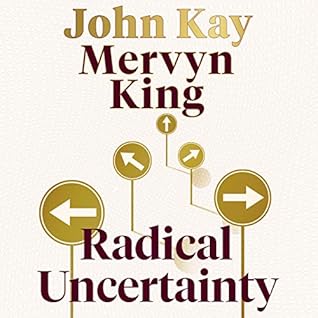More on this book
Community
Kindle Notes & Highlights
by
John Kay
Read between
September 17 - November 12, 2020
makers – in business, in politics, in finance. And to observe that having prior opinions about everything is one of the principal characteristics distinguishing the bad decision-maker. Victims of ideology or arrogance, often talking more than they listen, such people fail to acknowledge that on almost every subject, someone else knows more than they do. They do not recognise the limits of knowledge – both the limits of their own knowledge, and the limits of all human knowledge of complex and evolving situations. They
The participants at the strategy weekend were susceptible to bullshit because they did not really believe they had a problem; the offsite debate was no more than a required observance of the modern corporation. Like the readers of self-help books, the attendees planned to return to their offices on Monday morning to get on with their work. Business leaders have often told us ‘we want someone like you to challenge our ideas’. Our experience is that the statement is almost never true. Need, sometimes; want, rarely.
2016, The Economist examined country forecasts made by the International Monetary Fund (IMF) in its Spring World Economic Outlook. Of the 207 recessions – defined as a fall in output between the year in which the forecast was made and the following year – the World Economic Outlook had predicted precisely none of them.25 This finding is a stunning indictment of our ability to forecast movements in aggregate economic activity. It seems that we can forecast changes in GDP when there
really aren’t any but that we cannot forecast large swings in economic activity.
have reverted to the horse and cart after abandoning the use of fossil fuels. We simply


